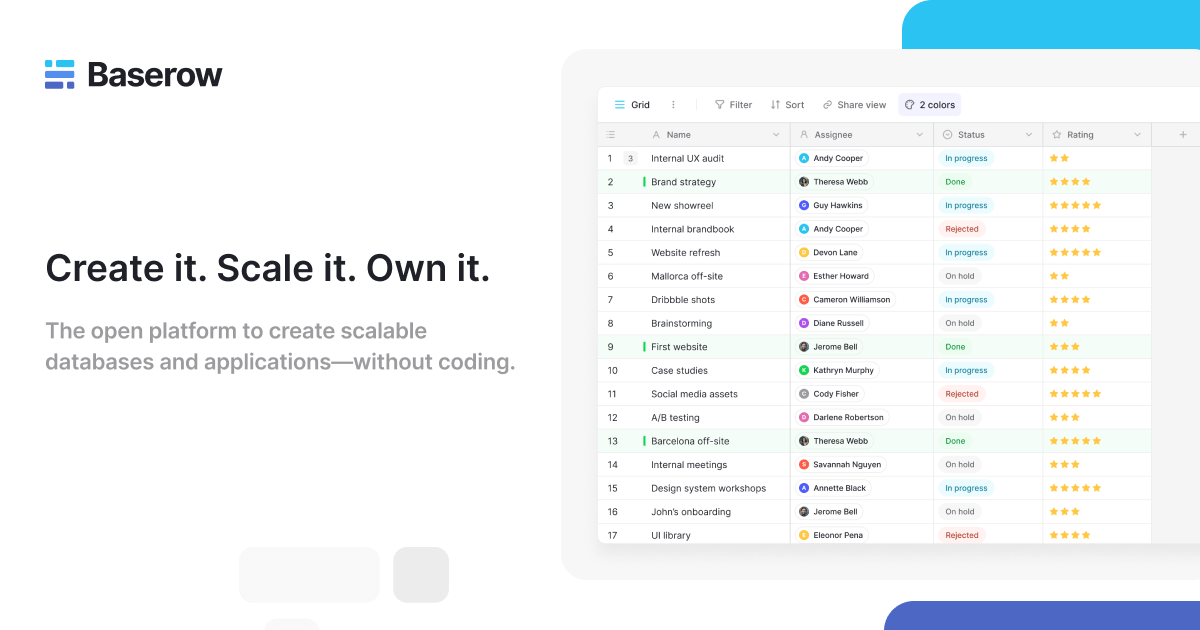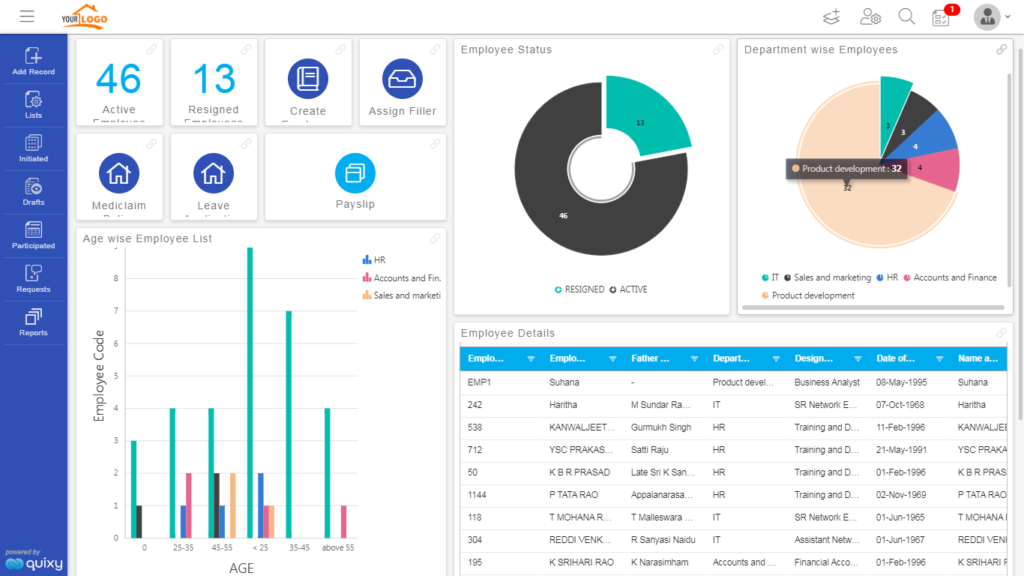Improve Open Platform Database Development with No-Code Advancement Operatings Systems
Improve Open Platform Database Development with No-Code Advancement Operatings Systems
Blog Article
Exploring the Benefits of Scalable Databases That Call For No Coding Skills for Efficient Information Administration Solutions
The emergence of scalable databases that remove the necessity for coding abilities provides a transformative possibility for companies seeking reliable information monitoring remedies. As we consider the ramifications of such improvements, it comes to be critical to examine how they can reshape the landscape of data management and drive sustainable growth in a competitive atmosphere.
Improved Availability for Individuals
Improved availability for individuals is an essential facet of scalable data sources, making certain that data administration systems are easy to use and user-friendly. In an era where data-driven decisions are paramount, access permits a broader variety of individuals, including those without extensive technological competence, to engage with database systems effectively. This democratization of information gain access to helps with improved partnership across divisions, equipping employees to make and extract understandings notified decisions.
User-friendly interfaces, such as drag-and-drop features and aesthetic data depiction, simplify complex information interactions. These enhancements decrease the learning contour connected with traditional data source management, making it possible for individuals to concentrate on leveraging information instead of coming to grips with technical intricacies. Scalable databases commonly incorporate real-time analytics and customizable dashboards, giving users with prompt insights tailored to their certain demands.

Cost-Effectiveness and Resource Cost Savings
Effective information management not just hinges on accessibility however also on cost-effectiveness and source savings. Scalable data sources developed for customers without any coding abilities considerably reduce monetary burdens normally connected with typical database monitoring systems. By eliminating the need for specialized programs expertise, organizations can assign their sources a lot more efficiently, concentrating funds on core business activities instead of extensive training or employing experienced workers.
In addition, these databases commonly make use of cloud-based services, which additionally lower costs connected to equipment and upkeep. Organizations can scale their database services according to their requirements, staying clear of the expenses incurred from over-provisioning resources. This versatility indicates businesses can adjust to transforming needs without sustaining unneeded costs, resulting in considerable long-lasting financial savings.
In addition, user-friendly interfaces enhance information access and monitoring procedures, reducing the moment spent on management jobs. This performance converts right into labor cost savings, enabling teams to focus on tactical efforts instead of routine maintenance. Overall, adopting scalable data sources that call for no coding abilities cultivates a much more cost-efficient technique to information administration, allowing organizations to maximize their sources while keeping high degrees of operational effectiveness.
Improved Cooperation Throughout Teams

In addition, scalable databases facilitate seamless communication amongst group members. With user-friendly interfaces that need no coding abilities, staff members can conveniently create, modify, and share reports or dashboards tailored to their particular requirements. This democratization of data equips non-technical individuals to add understandings, boosting the joint setting.
In addition, these data sources sustain simultaneous accessibility, permitting numerous customers to deal with the very same dataset all at once. This attribute boosts performance, as groups can participate in joint data analysis without the risk of version control issues. The capacity to leave notes or comments directly within the database further promotes discussion and clears up data interpretations.
Streamlined Information Monitoring Processes
In today's data-driven setting, organizations recognize the necessity of structured data management processes to official website optimize effectiveness and precision. By leveraging scalable databases that need no coding abilities, organizations can streamline their data handling and reduce the intricacies commonly connected with standard database systems. This accessibility encourages non-technical individuals to engage straight with data, promoting quicker decision-making and minimizing reliance on specialized IT employees.
Structured data monitoring processes enhance process by automating routine jobs such as data access, validation, and coverage. Automated data assimilation guarantees that info from different resources is aggregated flawlessly, removing silos and fostering an unified sight of crucial organization metrics (no-code). Additionally, user-friendly interfaces allow personnel to adjust data quickly, allowing them to generate understandings that drive strategic efforts without the demand for comprehensive training.
This efficiency not only increases functional processes however additionally reduces the capacity for human mistake, ensuring that data stays exact and reliable. Inevitably, structured data management processes through scalable databases cause boosted performance, allowing organizations to focus on core activities while guaranteeing that their data administration methods are efficient and reliable.
Scalability for Expanding Companies

For increasing business, the ability to scale up or down is essential. A scalable data source can manage an influx of data created from brand-new customers, items, or solutions, guaranteeing that service operations stay continuous. These data sources offer the capability to handle peak loads successfully, which is vital during periods of quick growth or seasonal spikes.
Additionally, lots of scalable database options are designed with straightforward interfaces that call for no coding skills, equipping non-technical staff to handle information efficiently (no-code). This democratization of information administration permits organizations to designate sources tactically and lower dependency on specialized IT employees
Ultimately, taking on a scalable database not only boosts operational effectiveness yet also promotes a setting where businesses can evolve and check it out innovate without the restraints of traditional database systems. This adaptability positions companies for long-lasting success in today's competitive landscape.
Verdict
In verdict, scalable data sources that need no coding abilities supply considerable advantages for efficient data management. By simplifying information administration processes and providing scalability for growing businesses, such remedies make it possible for companies to adapt to altering needs properly.
Improved availability for users is a vital aspect of scalable data sources, making certain that data management systems are instinctive and straightforward.Straightforward user go to these guys interfaces, such as drag-and-drop features and aesthetic information representation, simplify intricate data communications. Generally, adopting scalable data sources that require no coding abilities promotes an extra economical method to information administration, enabling companies to maximize their sources while maintaining high degrees of operational performance.
By leveraging scalable databases that call for no coding skills, services can simplify their information handling and reduce the complexities typically connected with traditional database systems - no-code.Structured data monitoring processes improve workflow by automating routine jobs such as data entrance, recognition, and reporting
Report this page